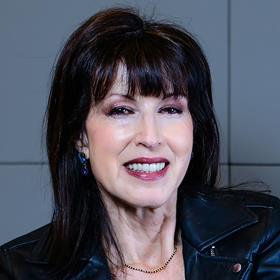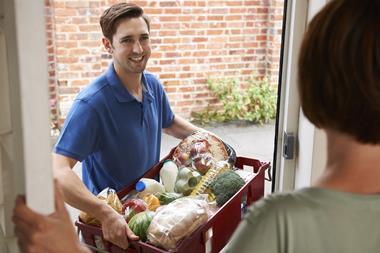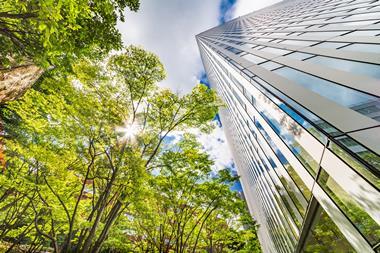It speaks volumes for our thirst for entertainment, as we endure our third lockdown, that we have been in thrall this week to Jackie Weaver and the antics at a meeting of the Handforth Parish Council. As always, such gems find their way onto twitter first and from there into the news.

How long will it be before Jackie Weaver makes a guest appearance on one of our TV chat shows and becomes our next national icon?
I was fortunate to have the opportunity this week, courtesy of ULI Europe, to interview Rethinking Real Estate author Dror Poleg once again. Our session was part of ULI NEXT/Young Leaders Tech Talks: Exploring New Drivers of Change in the Land Use Industry. Our previous interview was in London exactly a year ago to mark the launch of Poleg’s insightful book.
The publication was incredibly well timed as it came out just before Covid-19 struck which means that so many of his predictions have been fast-forwarded at break neck speed. On rereading the book, I noticed that the final words read ‘it’s going to be unreal’. It certainly has proved to be so far! Our wide-ranging fireside chat kicked off with a review of Poleg’s reference in the book to the ‘tectonic shift’ in real estate with retail being affected first. He had also said that ‘no asset is safe’. We talked about which assets could now be at risk and whether the current industry favourite, industrial and logistics, could be exposed.
We discussed the role of technology and innovation, the future of cities and communities and much, much more. I am delighted that we managed to give a mention to the increased commercial use of drones something close to both our hearts. If you missed it, the talk is available on the ULI Europe website.

In the book, Poleg commented that spending thirty minutes a day on twitter can help you be better informed than 99% of your competition. I am grateful for the daily insights contained in his regular twitter commentary. A light hearted post just this week drew attention to ‘a new service allowing Bay Area residents to apply to have a ‘Verified Badge crest’ (read: blue check mark) installed on the facade of their homes to essentially identify themselves as an authentic public figure in real life.’
This wasn’t intended to be taken seriously but the large number of responses indicates that maybe we will be seeing more instances of virtual and real life merging.
The ULI Europe conference programme also included a fascinating and timely keynote from eminent Yale Professor Frank Snowden, a renowned expert on the history of infectious diseases and public health and the intellectual history of medicine. His published works include a study of epidemic diseases in the west since 1600. Interestingly, he cited the ‘15 minute city’ as the silver lining in the Covid-19 cloud.
He said that cities are in the frontline of having to address social inequality, climate change and Covid-19 and once again, cities are vulnerable to disease spread through the air. He sees the ‘15 minute city’ as part of the survival tool kit to win back cities from the car. However, he stressed that the concept, which involves decentralising and rebuilding so everything you need is within a 15minute walk, needs good leadership and coherent messaging.
He said that 40 cities have signed up including Los Angeles, Barcelona and Melbourne. Ronen Journo asked a probing question about what new norms we will need to be prepared to accept. Snowden responded that we need a new mindset and a rethink of life in cities and that we have the opportunity to build a safer and more sustainable world.
We were fortunate to have Professor Carlos Moreno, the creator of the ‘15 minute city’ concept, as a guest on our recent Mishcon de Reya Shaping Cities Event chaired by Property Week editor Liz Hamson. The other panelists were Amanda Levete CBE Founder and Principal of architectural practice AL_A, André Gibbs, Partner at Argent and Joint Lead on Argent Related’s development of Brent Cross Town and Brendan Wallace, Co-founder and Managing Partner of VC fund Fifth Wall.
Click here for a highlights film of the event.
Meanwhile in Miami, Mayor Francis Suarez continues to attract attention. He has announced a partnership between the City of Miami and WeWork intended to offer a ‘soft landing’ for companies relocating to the Magic City with discounted access to WeWork spaces. As Suarez commented, ‘To be a city of the future, Miami needs to be at the forefront of adaptation… we need to be as swift and nimble as the companies we’re trying to attract here–so I think it speaks volumes of us as a city that we’re partnered with a brand as trailblazer as WeWork.’ Miami’s success is indicative of the transformation of cities into consumer brands.
Cities attempting to brand themselves is nothing new, but in the era of working from home, the larger cities are losing their monopoly on the top jobs. It remains to be seen which cities will be the winners and which the losers
It seems that remote working is here to stay. Amongst the many lockdown surveys, the University of Chicago recently surveyed 15,000 Americans to investigate whether and how working from home will continue after Covid-19. The pandemic provided a mass experiment in which half of all paid hours were worked from home between May and October last year.
The survey found that 22% of all full work days will be worked from home post-Covid, compared with just 5% before. Some have commented that this looks on the low side but it is expected that even this rate of home working could impact worker spending in major city centres by 5 to 10 %.
Thank you to Placetech’s Dino Moutsopoulos for convening a very enjoyable virtual drinks evening for a few proptech colleagues using their new digital platform which works for up to 350 guests with break out rooms for private meetings. It was a great opportunity to share some thoughts and thank you Dino for referring to us as ‘some of the world’s foremost thinkers in #proptech’! For Elie Finegold, dialing in from Dallas Texas, it was a morning drink and for Magnus Svantegård it was a quick cameo appearance from the ski slopes in Sweden.
My main takeaway from the fast moving conversation was the importance of reading science fiction and in particular Asimov. One of his many notable quotes that resonates is, ‘Individual science fiction stories may seem as trivial as ever to the blinder critics and philosophers of today, but the core of science fiction – its essence – has become crucial to our salvation, if we are to be saved at all.’ Time to get reading some science fiction!
Finally, it may sound like something straight out of a science fiction book, but scientists have now engineered spinach plants which are capable of sending emails. When the spinach roots detect nitroaromatics in groundwater, a compound apparently found in explosives such as landmines, the carbon nanotubes within the plant leaves send out a signal. The signal is then read by an infrared camera, sending an email alert to the scientists.
This technology known as plant nanobionics, is apparently the process by which plants are given new skills. So, we are a step closer to being able to communicate with our plants and trees, something that Prince Charles has been advocating for years.
Susan Freeman is a partner at Mishcon de Reya





























No comments yet